PRESERVING A MILITARY LEGACY FOR FUTURE GENERATIONS
The following Reflections represents 1STSGT Bill Hudson Gross’s legacy of his military service from 2002 to Present. If you are a Veteran, consider preserving a record of your own military service, including your memories and photographs, on Togetherweserved.com (TWS), the leading archive of living military history. The following Service Reflections is an easy-to-complete self-interview, located on your TWS Military Service Page, which enables you to remember key people and events from your military service and the impact they made on your life. Start recording your own Military Memories HERE.
Please describe who or what influenced your decision to join the Marine Corps?

I grew up in rural, southeastern Kentucky and worked with my father and grandfather roofing and working tobacco fields seasonally. My father was a very strict man and most of my youth can be summed up by trying to identify a way to escape my then reality of never leaving my hometown. I participated in NJROTC and sports during high school to keep busy.
During high school, vocationally, and soon after graduation, I worked on a degree and certification in Masonry seemingly solidifying the reality that I would never leave Kentucky. The lack of opportunity teamed with the fall of the twin towers in my Senior Year, AP History led me to pursue the Navy Recruiting office. After multiple visits with no Navy Recruiter in the Office a lean, well-articulated Marine Recruiter approached me. Then, Sergeant Wesley Trucks inquired as to my intentions and made a very strong, positive impact on my tentative decision.
I consulted with my grandfather prior to signing papers and the old man gave me some sage advice. At that time, he had been in roofing for more than 50 years. All of his brothers had served in the military in various capacities and he strongly encouraged the choice while his steely-eyed glaze reminisced on his own life and hardships.
Neither of my parents were enthused about me enlisting and though they both tried their very best to deter me from joining, my father’s service in the Army and that of his father also influenced my decision.
Ultimately the war had started in Afghanistan and Iraq was on the horizon. As many young men do, absent political scope, a true understanding of the world, and in a quest for identity and freedom; I felt the responsibility to answer the call.
Whether you were in the service for several years or as a career, please describe the direction or path you took. What was your reason for leaving?
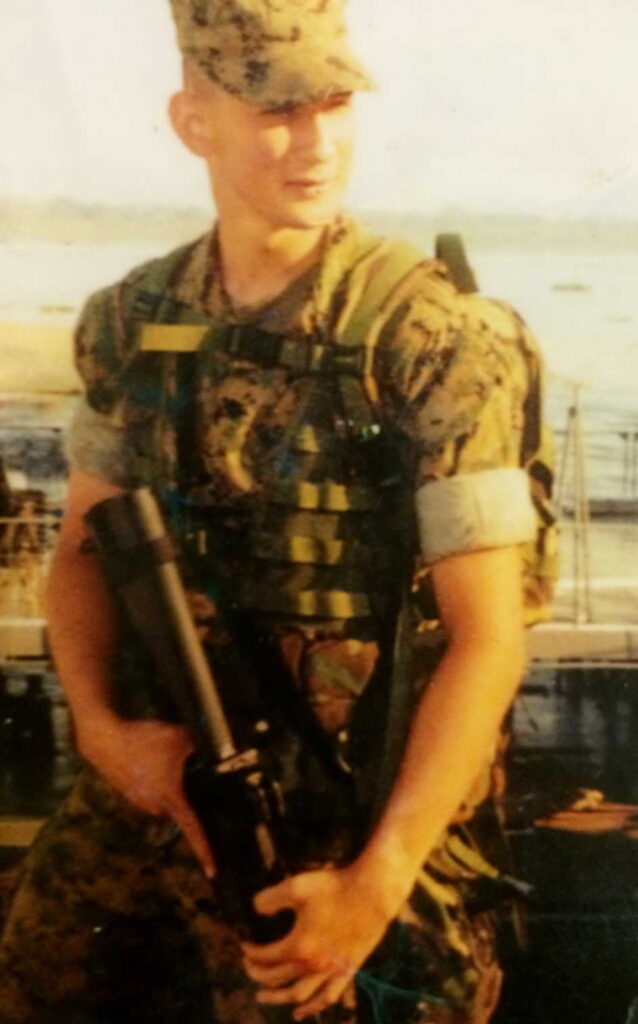
During the time that I enlisted, there were no Infantry allocations available. If I was going to join the United States Marine Corps, I most certainly did not want to join to be anything other than Infantry. Infantry wasn’t in the cards for me so I compromised and signed a contract for Motor Transport with the understanding that when I made it through boot camp, claimed the title U.S. Marine and made my way to follow-on training my Recruiters would be able to change my MOS to Infantry. Though this sounds suspiciously like recruiter shenanigans that turn out badly for many ignorant young Marines-to-be, my recruiters were honest and this exactly what happened.
After boot camp, I received orders to Camp Geiger to await training at Marine Combat Training (MCT). I was in a forming Platoon awaiting training with several of my boot camp peers. All of my friends that were contract Infantry were pulled to be Camp Guard as their wait for training was longer than that of non-infantry.
I was pulled to speak to a Master Gunnery Sergeant. He informed me that he had talked to an old friend (MSgt Derrick Swanner) about my MOS and directed me to sign a 03XX addendum. I had no choice of what job in the infantry I would do however, I did get what I had asked for. I then immediately went to training and ended up skipping the line in relation to all of my boot camp peers. This resulted in me arriving in the fleet by more than two months earlier than those that I had gone to boot camp with and similarly, combat.
Upon graduation at Infantry Training Battalion, I was yet again surprised. I ended up going to a very small machine gunboat, unit (Small Craft Company). As most of my peers from Infantry Training Battalion found themselves in Straight Leg Units bound for Afghanistan, I was sent to Paraguay, Uruguay, Brazil, South Africa, Ghana, Gambia, Senegal, Cape Verde and finally Iraq. Prior to leaving this unit for 3d Battalion, 6th Marines I was much more informed with comm, navigation, and amphibious operations when compared to my soon the be straight leg brethren. I was also qualified as a Machine Gunner in addition to being a Rifleman, and a Coxswain. Upon arriving to 3rd Battalion, 6th Marines Co K I had served a very long tour in Iraq. At that time the war in Iraq was very young and I was the only one in the Unit to have been to Iraq. Everyone else was Afghanistan veterans. This set me up for success in two following tours to Iraq with 3/6 as a Fireteam Leader and Squad Leader.
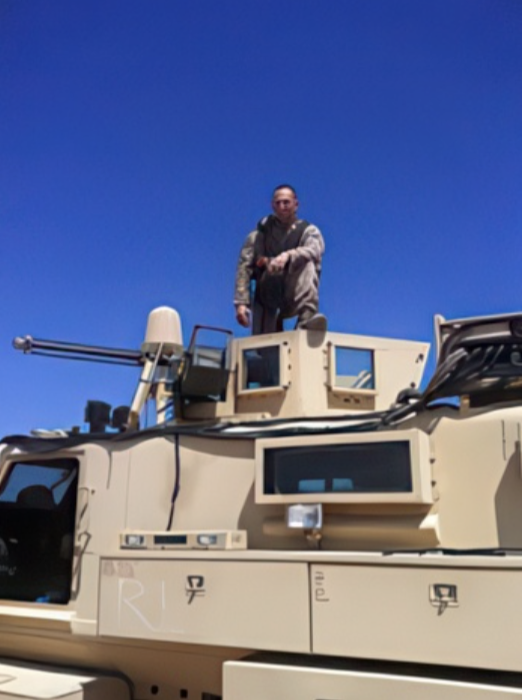
My Infantry career has taken me all over the world. I have fought in multiple theatres and operations. I can honestly say that I have accomplished everything that I have ever wanted to accomplish or achieve in the Marine Corps as an Infantryman. At a certain point, regardless of Military Occupational Specialty all Marine Leaders slowly turn into administrators, evaluators, and trainers. As I reflect on so many Marines that have given their lives for their brothers, their beliefs, and their nation; I can’t help but think that Infantry is a young man’s job and the best thing for the Corps is for the old guys to get out of the way to keep it young.
After a lifetime of combat your personality, views, and goals change. I have always said that if I had it to do all over again I would do it exactly the same yet there is a part of me that speaks on the part of a restless soul. This part tells me that if I had it to do all over again I would rather be on the lifesaving side than the life taking side. I don’t want to be one of those salty old infantrymen that is a place holder waiting on retirement. I feel that I still have a great number of years to serve left in me but feel that it is time to pursue service in a different capacity as my days of kicking in doors have passed.
I am currently pursuing a commission in the United States Navy as a Navy Nurse Corps Officer in order to continue to serve and help those very young Marines, Sailors and their family members in a very humbling capacity. I was selected for the United States Navy, Medical Enlisted Commissioning Program and am currently on course to conduct an inter-service transfer from the Marine Corps as a First Sergeant with 19 years in the Marine Corps to the United States Navy as an Ensign.
If you participated in any military operations, including combat, humanitarian and peacekeeping operations, please describe those which made a lasting impact on you and, if life-changing, in what way?
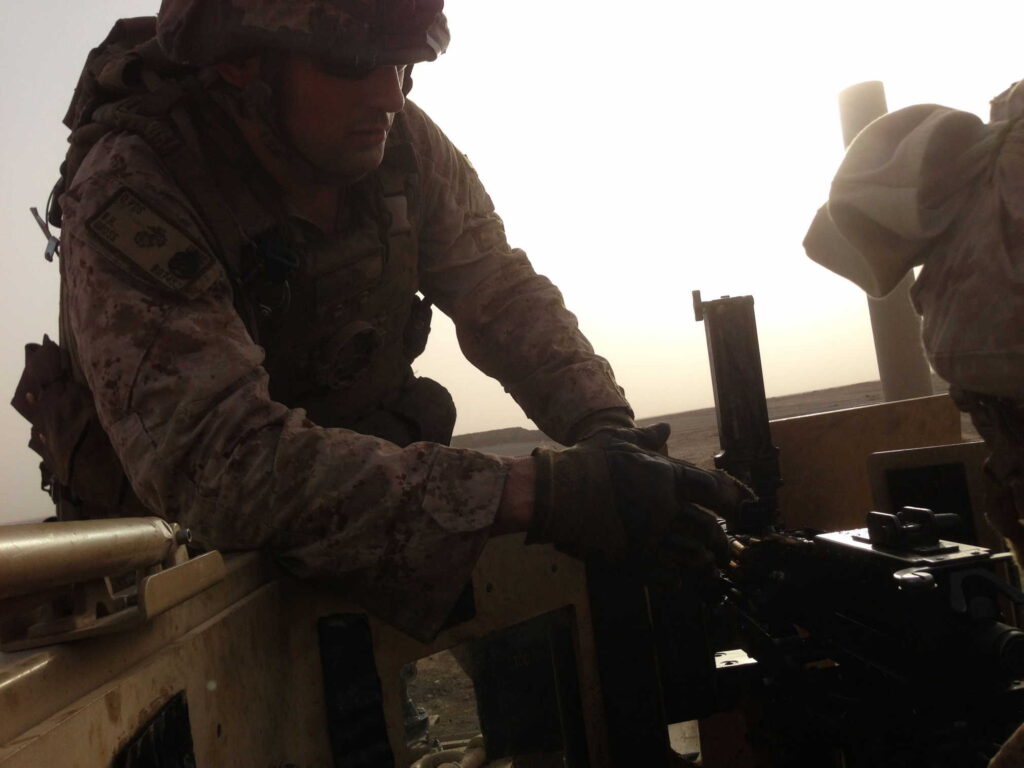
Combat is tricky spiritually, psychologically, and physically. Combat is exhilarating, challenging, yet easy. It is very hard to simply stop being a war-fighter. Combat and deployments can be addictive and one can find themselves so close to their Marines and so yearning to deploy that those deployments begin to define them. It’s very easy to become distant to your family, spouse, and civilians in general. They will not understand you, and you will not understand them. When many think of a United States Marine, they think of the warfighter. This perception is flawed as there is so much more to being a Marine than just fighting and in my experience it easy for Marines to rest on their laurels and allow discipline and conduct to falter.
As I reflect on the past with no regrets, I have learned a great deal about the warfighter and wish for others to understand the toll combat can take on someone in both good and bad ways. A Marine at the peak of fitness, sharp mentally, on top of the world, fighting for something far greater than him or herself has a hard time slowing down to normal life. Always find ways to redefine who you are beyond the Marine Corps.
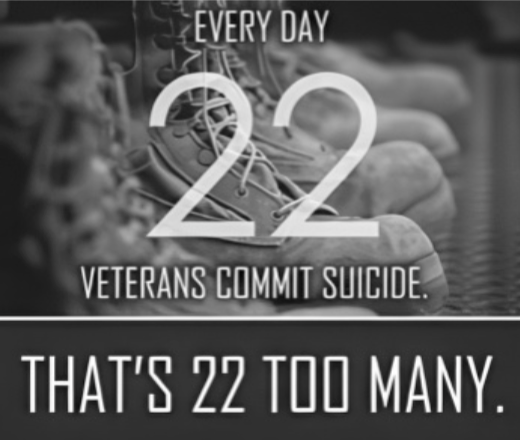
One thing that we see daily is veteran suicide and this hurts all of us. I very much feel that we are great about preparing one another for combat, but are very poorly equipped at preparing one another for what happens after. When you are suddenly at a normal job, experiencing marital problems, no longer in shape and reflect upon what you once were and compare it to life now. Though I never left the Corps, I have a hard time watching those that I have served with as their health declines and worlds collapse. Many succeed, yet there are many that do not. Another cautionary tale that I would like to portray is that combat is desensitizing. Little by little right and wrong can begin to blur by living this way back to back and year to year without truly adapting back to normalcy.
Breaks between deployments are important. During my younger years in the Corps between working up for a deployment and then execution, there was really no time to decompress. A lot of the time this tempo is the “needs of the Marine Corps” however, more often than not this is what the Marine wants.
For the most part, combat can test and create some of the most resilient members of society that are an important staple for our Republic as civilians.
Was there a particular incident during your service when you believed you were in a situation you might not survive? Please describe what happened and what was the outcome.
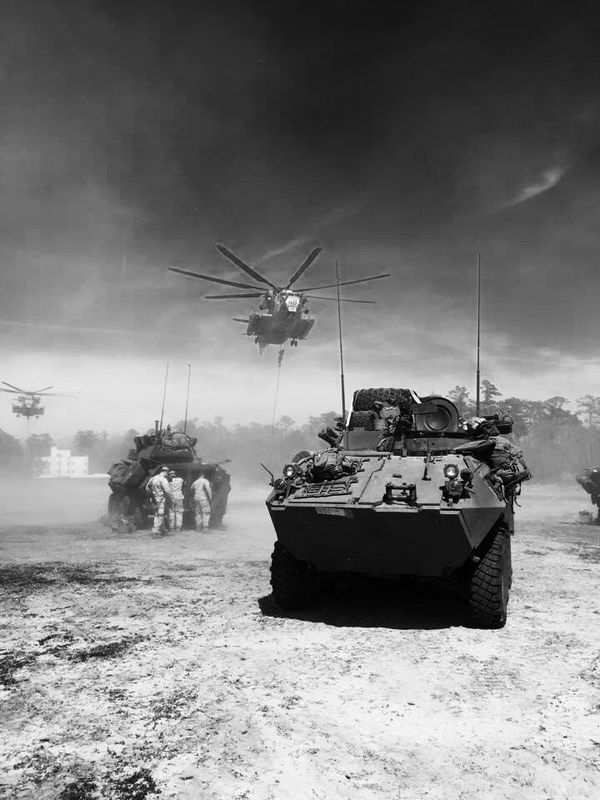
I have been in several situations where I should not be alive. One of the scariest times, as I can recall, was the medevac process. The lack of memories makes most everything a blur but when piecing together memories with facts in medical records the events of this process are nothing short of something you would expect in a horror film. Conducting a patrol and waking up to everyone screaming and yelling. Blood coming out of your eyes and nose. Waking up again in the pitch black, loud sound of rotors, icy cold finger checking your pulse, no movement, bound and secured as if you are in a package. Waking up under bright lights, various strangers yelling, secured inside what appears to be aluminum foil on a gurney, unable to speak. Waking up under bright lights groggy, again not able to speak, getting injected with God knows what. Waking up with men women and children around you with horrible levels of health and gruesome injuries.
The outcome was years of Cognitive, Endocrine, and Vestibular Rehab but as resiliency has been noted, the ultimate outcome was recovery and returning to combat followed by many years of Marine Corps service.
Of all your duty stations or assignments, which one do you have fondest memories of and why? Which was your least favorite?
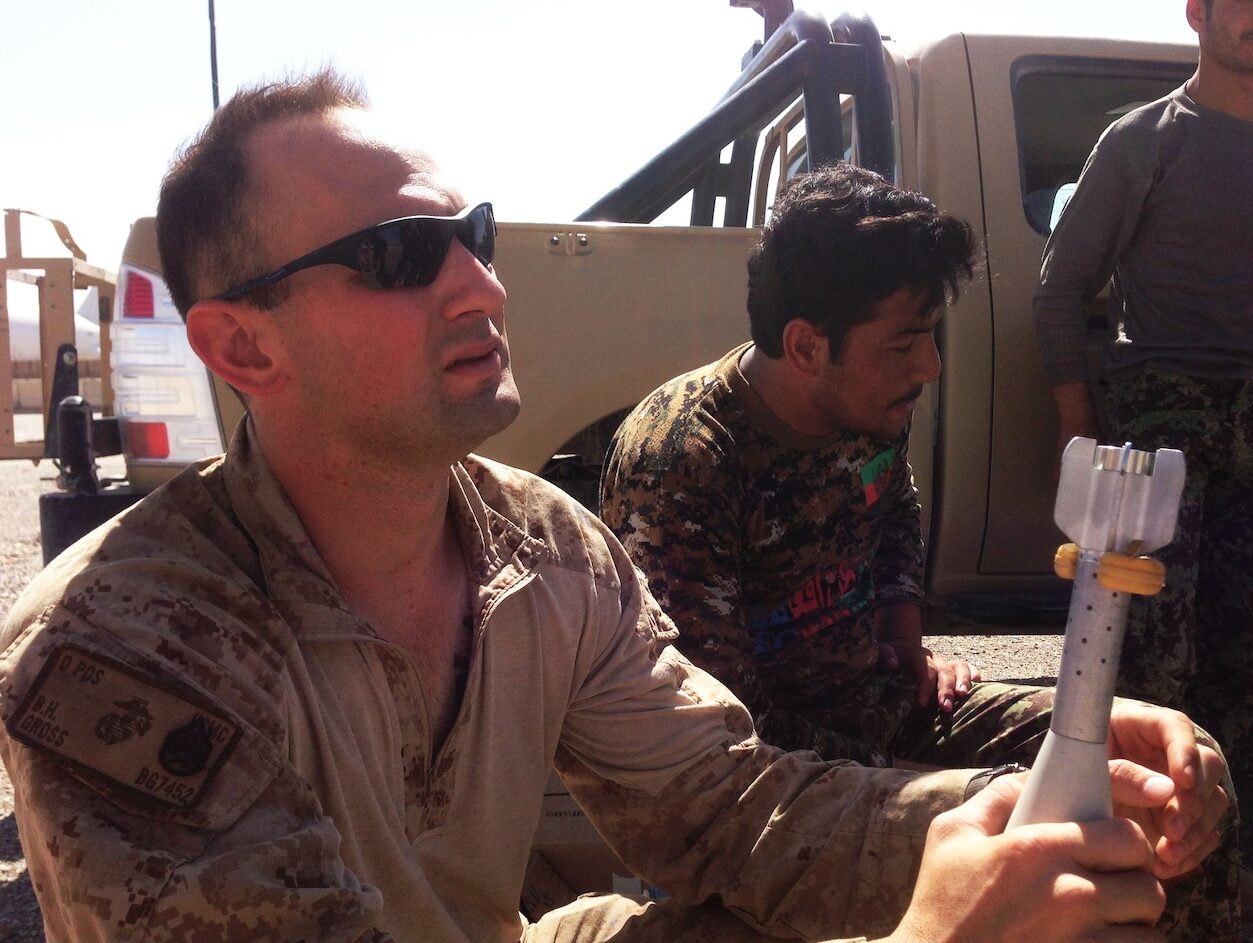
My fondest memories are as a Reconnaissance Tolai Advisor for a year in Afghanistan. I was in a state of shock when we first arrived as we were in a very small team and there was really no US footprint and no Marine security. Afghan (ANA) soldiers manned to posts and it was Afghan Battle Space. We were armed with a pistol and two magazines 90% of the time and rarely wore gear unless traveling from one ANA Battle Position to the next. After the culture shock, the battles that we fought in, alongside our ANA counterparts was something that I will never forget. Combat can somehow overcome all language barriers and upon reflection, we are all very lucky to have earned our Afghans trust and to have not got killed by our own counterparts.
I have many least favorite assignments and do not care to reflect or share these experiences. I prefer to focus and reflect upon the good while learning lessons from situations that are less than desirable. I will say that there are different types of Marines. Those who care about one another and the future of the Marine Corps as well as their men and those who do not. Both get promoted and both will be present for the entire duration of your service whether that be 4 / 30 years.
From your entire service, including combat, describe the personal memories which have impacted you most?
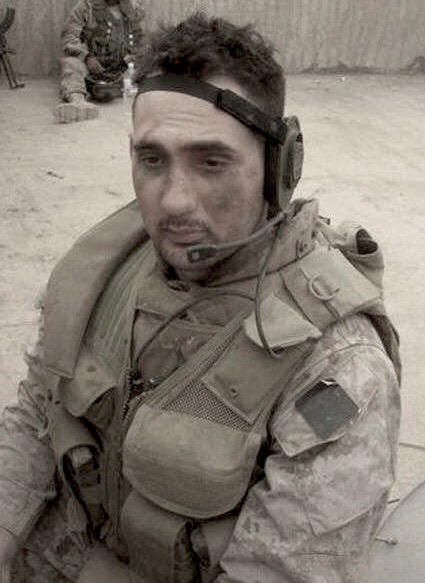
While serving in 3d Bn, 6th Marines, Kilo Co in Iraq during Operation Steel Curtain I often reflect on pushing block to block, house to house, city to city. Pamphlets were dropped prior to the offensive alerting the families to exit the city and that anyone remaining behind would be considered an enemy combatant. I remember taking enemy fire from a mosque adjacent our sector and I quickly slipped over the cinder block wall will my fire team and Iraqi army and in a trace. Once in the courtyard machine gun fire began reigning down on us from the mosque and the house located in the center of the courtyard was barricaded at every window and door. As LCpl Philipp, 1 Iraqi army soldier and I fired back with M16s and M203s my M249 gunner breached the door with his fully automatic 5.56. We fought inside the house with 0 casualties only to find that every concrete support entry and exit was rigged to blow. We are all very lucky to be alive.
So many memories and life-altering experiences. This question will have to be updated periodically with selection and time.
What achievement(s) are you most proud of from your military career?
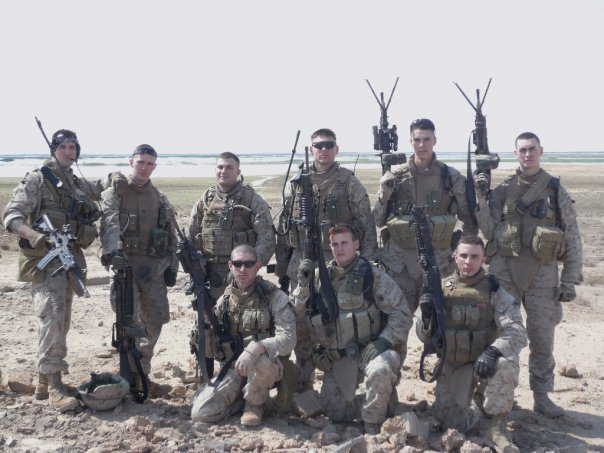
I have received a ridiculous number of awards and had many achievements during my military career. Some for valor, some for being good at my job at the time, some for the enemy being good at his job, some for being at the right place at the right time. I feel that my biggest achievement is to have not personally had a subordinate get killed on my watch, though I have had peers and superiors get killed.
I also feel that my number one achievement is to still be married. My wife is a Saint.
Of all the medals, awards, formal presentations and qualification badges you received, or other memorabilia, which one is the most meaningful to you and why?
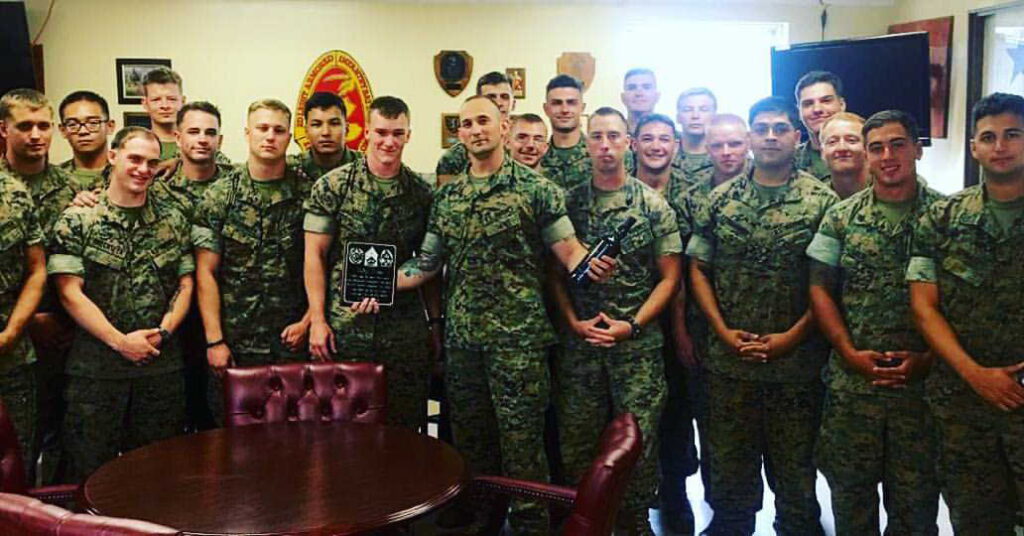
The most memorable items I have are going away gifts. I received an engraved decanter from my time as a Reconnaissance Tolia Advisor in Afghanistan which is filled with 30 year Glenfiddich and an engraved bottle of scotch from my platoon when I served as a Weapons Platoon Commander in 2d Light Armored Reconnaissance Bn. Additionally one of my most prized possessions also came from 2d LAR. Though I am not a 0313 I was presented an engraved 25mm Bushmaster barrel as I departed LAR and embarked on my next Marine Corps journey.
I am at a very strange point in the Marine Corps where my medals and badges just don’t hold the meaning that they once did. Somewhere along the line, they have just become a thing. I do think there is such a thing as having too many medals and receiving medals to frivolously. My Purple Hearts bother me mostly due to seeing soldiers, airmen, Marines, squids in the hospital wards across Iraq (TQ Surgical, Baghdad, Ballad, etc.) that were in significantly worse shape than me and also for those I know that can’t be here today to wear them.
I remember at one point in time I refused to wear my Purple Heart. I was a Sergeant. I was thoroughly chewed out by then SgtMaj Theakston who enlightened me as to why my argument was invalid. He told me that he did not care if I thought I rated the award or not. He told me that the Marine Corps says that I rate it and that wearing it is not about me or what I think. It is about wearing the Purple Heart to honor those who are not here and able to wear it.
This struck a chord with me and I have worn it ever since.
Which individual(s) from your time in the military stand out as having the most positive impact on you and why?
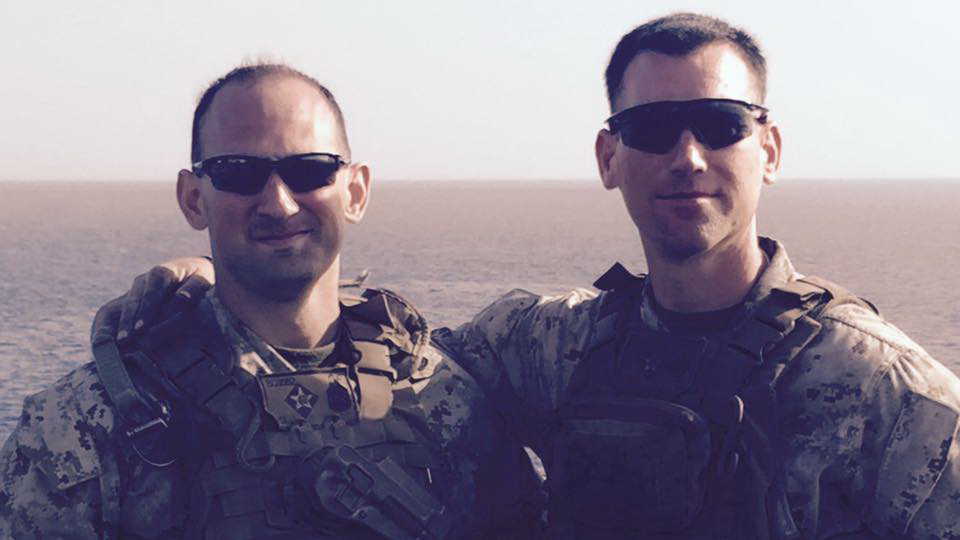
Then Staff Sergeant Farmer, now Gunner Tony Farmer is the single most important Marine in terms of my staying in the Marine Corps. He pinned me to Sergeant, Staff Sergeant, and First Sergeant. His sage counsel is what allowed me to break through the barrier of an ever-changing Marine Corps. He turned me from a rapid war beast to a critical thinker. He also pretty much forced me to do a Special Duty Assignment causing me to get promoted to Staff Sergeant and overcome my war injuries.
After years of service, you run into many Marines and Sailors that have a profound impact on you. It’s impossible for me to list the numerous individuals without writing a book but they know who they are as do I. Keep your friends close and your enemies closer.
Please recount the names of friends you served with, at which location, and what you remember most about them. Indicate those you are already in touch with and those you would like to make contact with.
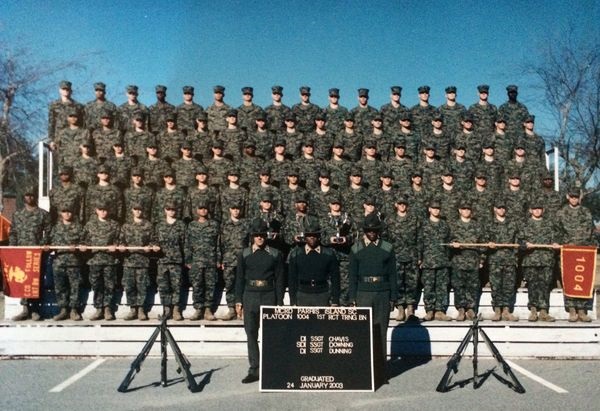
Small Craft Company
- LCpl Dan Smith (Friend)
- LCpl Anthony Korey (Friend)
- LCpl Joshua Kissell (Friend)
- Sgt James Cascio (Mentor)
- LCpl Shane Philipp (Friend and Subordinate Team Leader)
- LCpl Danny Levasser (Friend and Subordinate Team Leader)
- LCpl David Woolery (Friend)
- Sgt Curtis Romano (Friend and Fellow Squad Leader)
- Sgt Chaz Wheeler (Friend and Fellow Squad Leader)
- SSgt Tony Farmer (Platoon Sergeant / Because friend over the years)
Infantry Training Battalion
- Sgt Jon Osborn (Friend and fellow Combat Instructor)
- Sgt Nathan Bailey (Friend and fellow Combat Instructor)
- Sgt Scott Jackson (Friend and fellow Combat Instructor)
- Sgt Jason Dobbs (Friend and fellow Combat Instructor)
- Sgt Zachary Rubart (Friend and fellow Combat Instructor)
- SSgt Shawn Patanio (Friend)
- GySgt Rob Warfield (Friend)
- Capt Tim Reynolds (Friend and Superior)
- Capt Kevin Hanratty (Friend)
- Capt Patrick Broza (Friend)
2d Light Armored Reconnaissance Battalion
- GySgt Kevin Dumais (Friend)
- SSgt Jason Klinger (Friend)
- SSgt Caleb Little (Friend)
- SSgt Josh Byrne (Friend)
- SSgt Ian McConnell (Friend)
- SSgt Shaun Doyle (Friend)
Advanced Infantry Training Battalion
- Capt Kelly Candies (Friend and Superior)
- Capt John Critz (Friend and Superior)
- GySgt Rollie Pennington (Friend)
- SSgt Christopher Simser (Friend)
- SSgt Joseph Sabel (Friend)
- GySgt Joseph Apps
Can you recount a particular incident from your service which may or may not have been funny at the time but still makes you laugh?
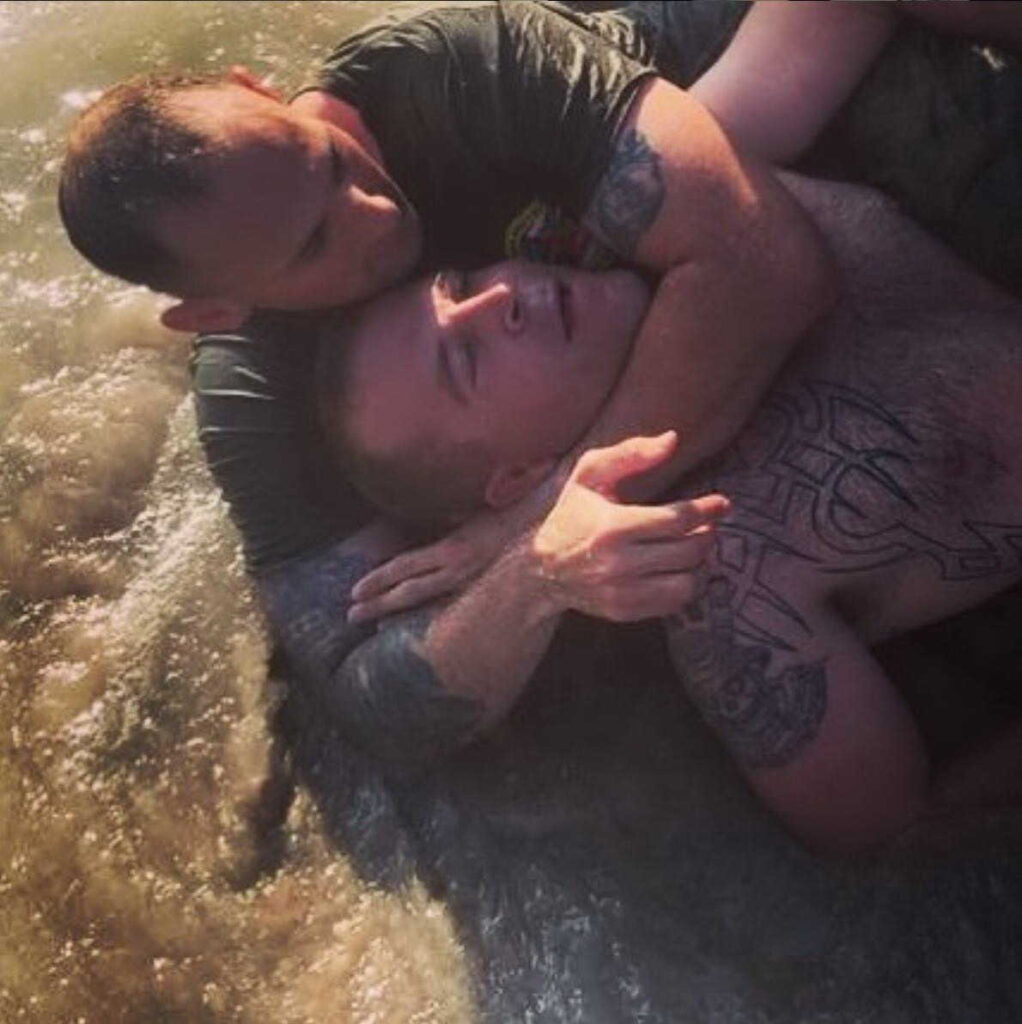
Perhaps retrospective humor will come with time.
What profession did you follow after your military service and what are you doing now? If you are currently serving, what is your present occupational specialty?
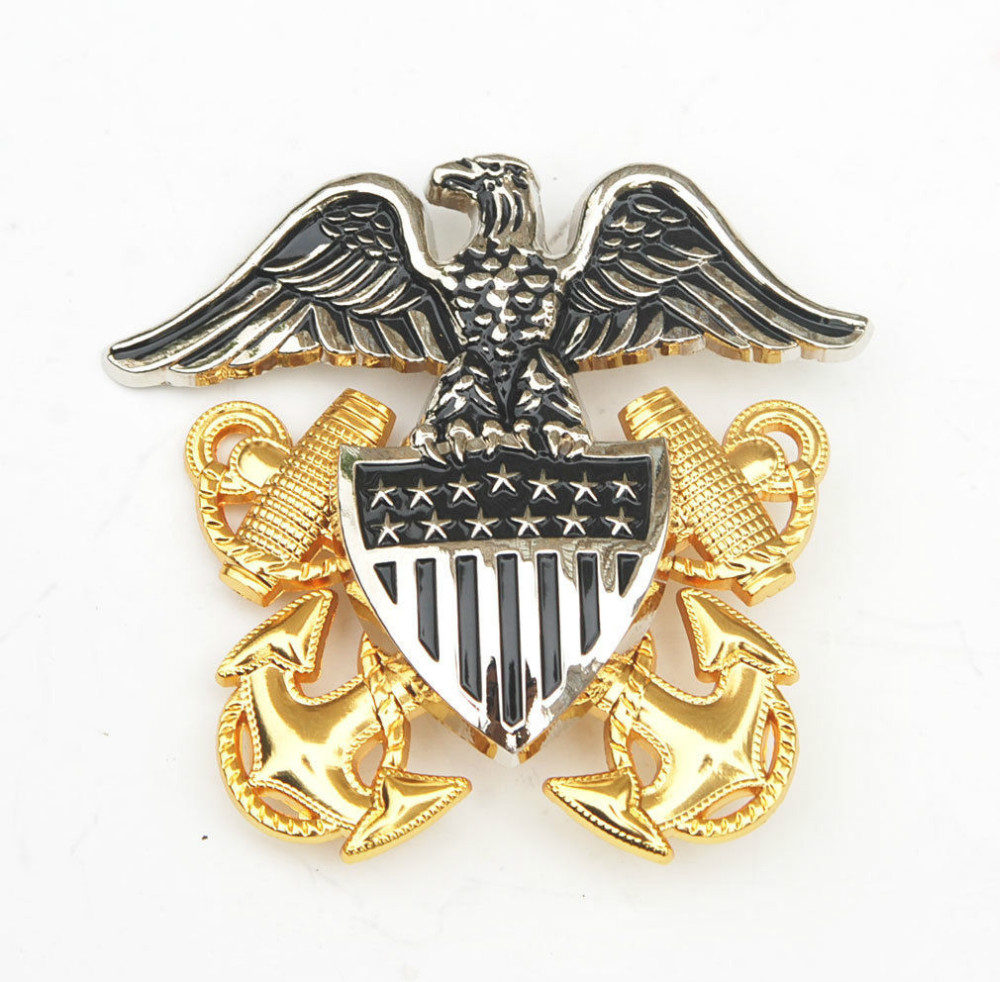
My present occupational specialty is 8999 First Sergeant. I am serving in a capacity as a United States Navy, Medical Enlisted Commissioning Program Select at Liberty University in Lynchburg, Virginia. I fall under 4th Combat Engineer Battalion, C Co as my administrative command. Upon successful completion of school, I will Commission in the Navy as an Ensign after 19.5 years as an enlisted Marine.
What military associations are you a member of, if any? What specific benefits do you derive from your memberships?
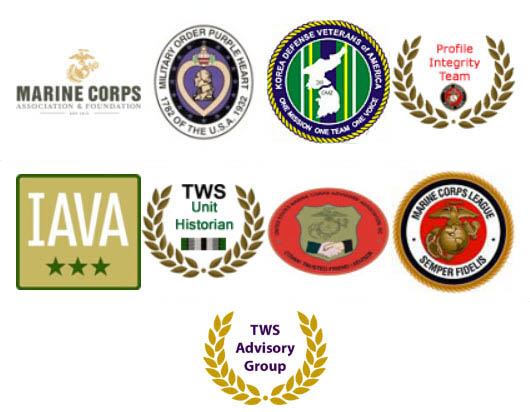
–Military Order of the Purple Heart Chapter 642
–Marine Corps Association and Foundation
–Korean Defense Veterans of America
–Iraq and Afghanistan Veterans of America (IAVA)
–The United States Marine Corps Advisors Association (COVAN)
–Marine Corps League
It is tough to stay current with all of the associations while remaining on active duty. Currently, their literature and appearance as tight-knit communities are my only benefit however, I am encouraged for the day that I can play a bigger part in these families.
In what ways has serving in the military influenced the way you have approached your life and your career? What do you miss most about your time in the service?
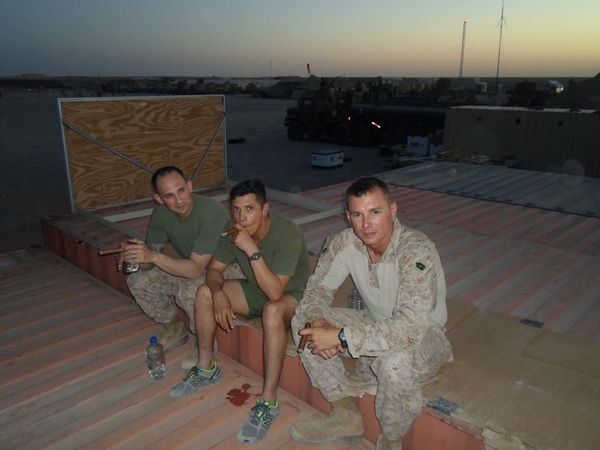
I have changed from a fireball to abnormally mellow. The experiences I have had. The evil that the world has to offer has tested my patience, social, political and religious views. I have a hard time finding anything important enough to worry about. I am a workaholic though I try to focus more on the family because of years of putting them second to the Marine Corps. I am the calm during every storm for my family and Marines. I have developed a sense of action based on prior planning and decisions vice emotions. I approach life giving everything my all and constantly identify my own personal deficiencies and attempt to better myself.
Based on your own experiences, what advice would you give to those who have recently joined the Marine Corps?
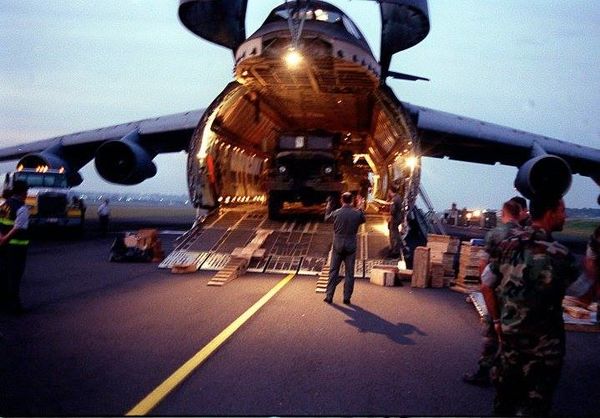
When you recently joined the Marine Corps reflect upon the occurrences that led up to the execution of that decision. Identify if you chose to accept the challenge of your own volition or if there were outliers that influenced your decision. Did you have family, friends or even a recruiter identify that this was the best route for you prior to you accepting the challenge?
The Marine Corps requires attentiveness and commitment of your whole being. It is very much a marriage between yourself and the institution for the benefit of your new, adopted brothers and sisters. Your commitment will be tested in good times and in bad times. If you were influenced to join and have not completely accepted this way of life you must make the Marine Corps your own.
One of the most important pieces of advice I can portray is adaptive thinking. Rarely will everything be peachy in combat or peace. Even if you chose a specialty that resembles an office job, there will be times of frustration. A positive mental attitude or adaptive thinking will help you navigate ruts and friction but also portray another way of looking at things to your eventual subordinates.
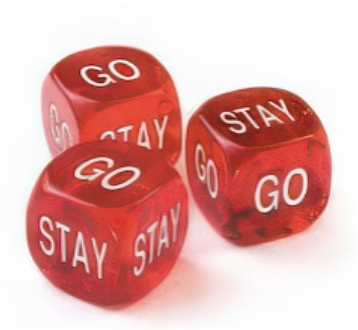
As you approach your halfway mark in your first enlistment start planning for your future. Plan for staying in as well as separating and moving on. So many times over the years I have had Marines that were dead set on getting out only to change their mind at the last minute. Strive to be your best you, all of the way until the end so that you are set up for success in any venture you pursue.
Pursue education outside the Marine Corps. Many are not ready for college when they join the Marine Corps but times are changing. Many more young enlisted Marines have degrees in recent years than what was normal when I entered service. While serving I have obtained an Associates Degree and a Bachelors Degree at no cost. I am pursuing another Bachelors Degree at this time with my GI Bill. Use your Tuition Assistance. If you stay in long enough you could very well have a doctorate by the time you retire with no student loan debt. If a highly deployable Infantry Marine can do it, any MOS can. Always have short achievable goals, mid-term and long term goals to keep you focused. While you are a Marine make sure that you are up to speed on the knowledge expected up you at your particular grade prior to pursuing additional education. The Marine Corps is your job in addition to being your way of life.
As you advance in the Marine Corps and find yourself with increased responsibility and higher leadership positions take care of your Marines. If you take care of your Marines they will take care of you. All success is a team achievement in some capacity whether that be you Marines having your back, your family or a combination of the two.
In what ways has together
weserved.com helped you remember your military service and the friends you served with.
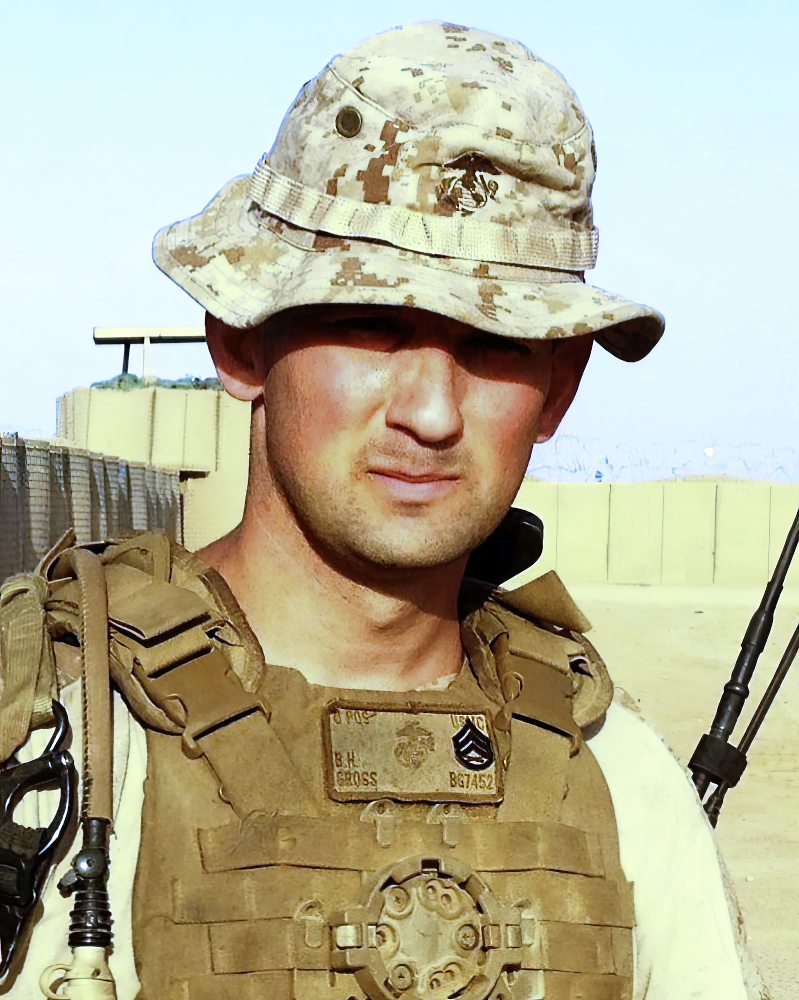
I started using Togetherweserved as a tool. Each unit that I would go to would want a biography. No two units would use the same biography format. Ultimately taking the time to fill out the profile as accurate as possible has allowed me to quickly produce biographies for each unit I go to.
As I continued to fill out the information, it would bring up memories, both good and bad. I have a hard time reflecting because there is so much that I do not care to reflect upon but it’s good to revisit memories and I hope that in time, I can identify more comedic moments or good times.
My favorite part of togetherweserved is seeing the Marines from the past, hearing their stories and seeing their pictures. I think the site is a great resource for many diverse reasons from connecting to reflecting. I sincerely hope that the word continues to get out about this site and that Marines from all eras share their lineage.
PRESERVE YOUR OWN SERVICE MEMORIES!
Boot Camp, Units, Combat Operations
Join Togetherweserved.com to Create a Legacy of Your Service
U.S. Marine Corps, U.S. Navy, U.S. Air Force, U.S. Army, U.S. Coast Guard
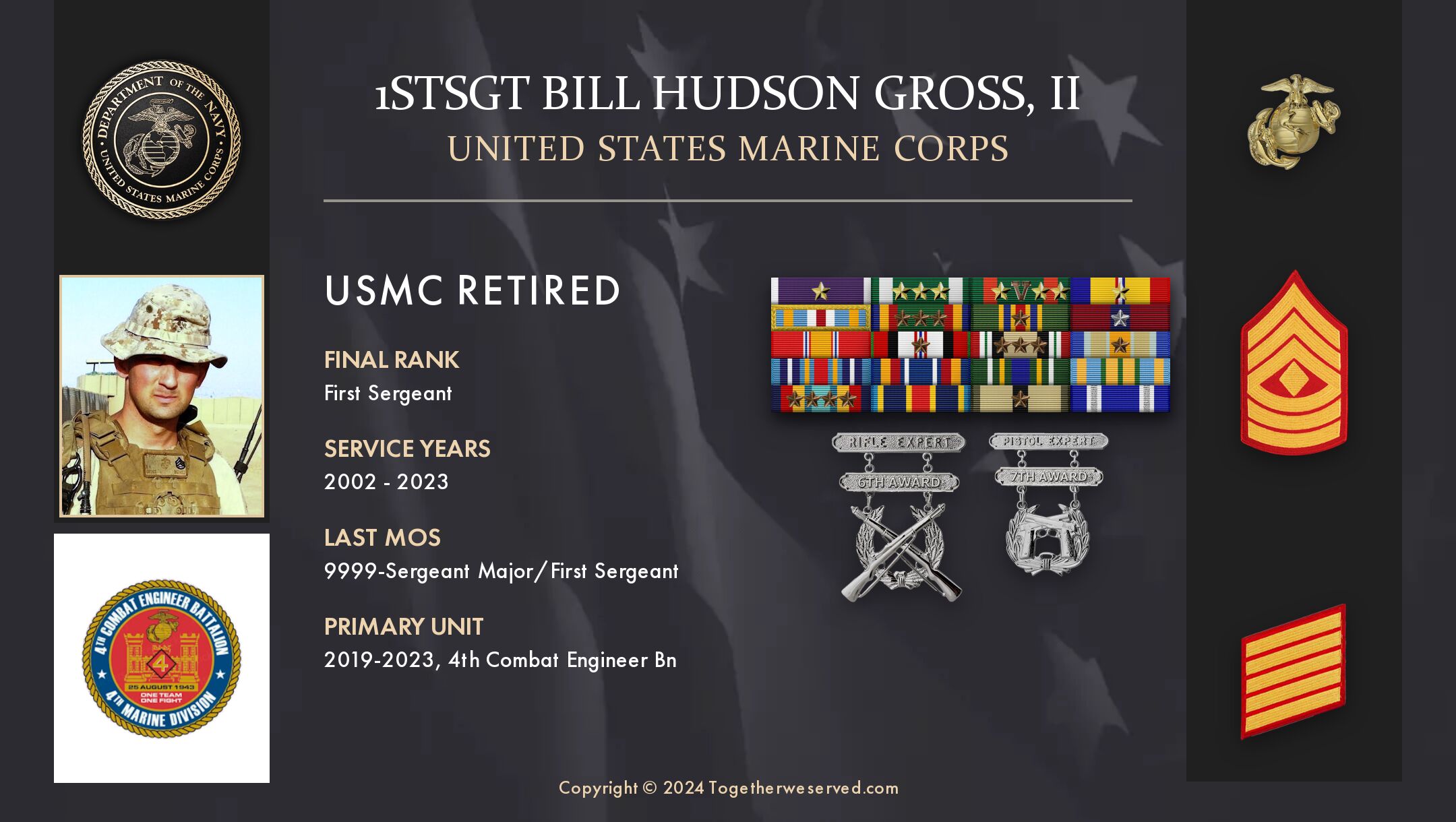
Who wrote this? I knew Gross as an E3, E4,and E5 and he is a liar. He dropped a grenade at his feet to get a purple heart. But I guess it was worth it if he sold his story to get all the way to 1st Sgt